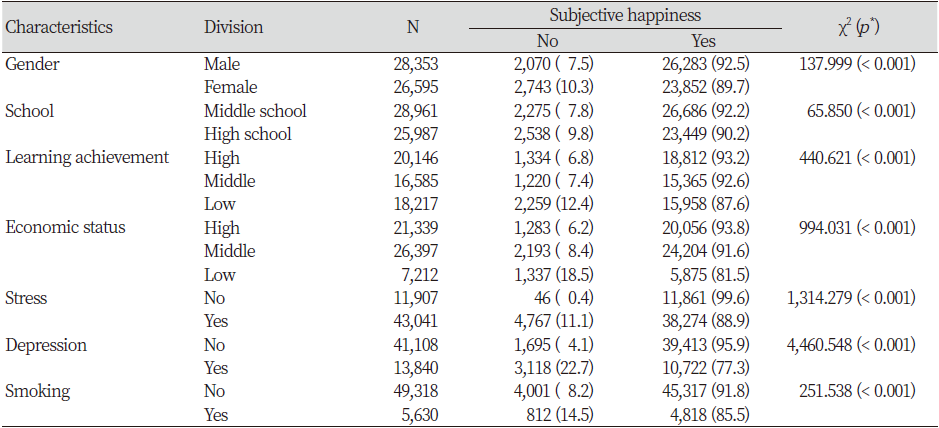Abstract
Objectives: This study aimed to determine the association between the oral health behavior of adolescents, symptoms of awareness and subjective happiness. Methods: This study is the 16th (2020) primitive self-administered survey that is completed using data on youth health behavior 54,948 to finally select people. Acomposite sample analysis was performed using SPSS window program 21.0. A chi-square test was performed tocompare subjective happiness according to the general characteristics of the subjects, oral health behavior, and awareness symptoms. Logistic regression analysis of the subjective happiness factor was the impact on composite samples. Results: Oral health is a subjective factor that affects happiness. Happiness was found to be 1.479 times higher when participants brushed their teeth more than three times a day and 1.175 times higher when they brushed after lunch. However, subjective happiness was 0.901 times lower when the awareness symptoms of pain was experienced, 0.843 times lower when there was tingling and throbbing, and 0.841 times lower when there was gingival pain. Conclusions: It is necessary to develop and guide various activity programs so that youth oral health education and subjective feelings of happiness can be improved to promote oral health.
Figures & Tables

Table 1. Subjective happiness according to general characteristics Unit : N(%)


